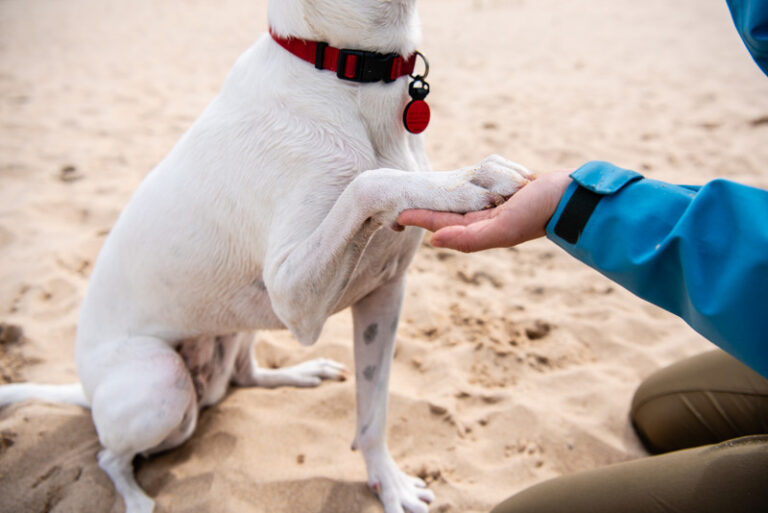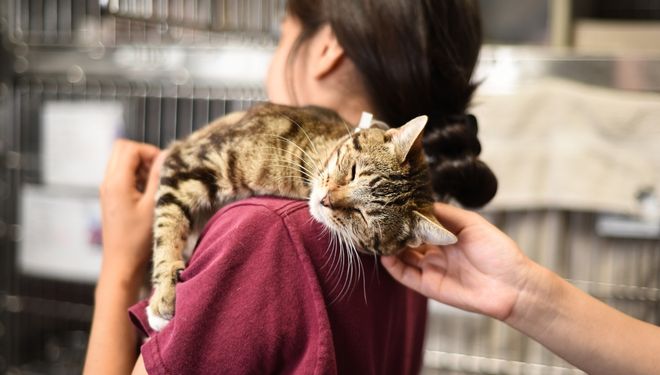Why would anyone buy a dog from a “backyard breeder”? Why wouldn’t they come to a shelter instead?
Something as simple as a shelter only being open on weekdays, when most people are at work, is one of the 11 barriers we’ve identified here that can make the difference between coming to a shelter, or acquiring a pet in another way like from a breeder.
To be clear: we are not advocating for people to buy pets from breeders. Rather, we must recognize, and fix, the ways we are making it hard for good people to adopt.
If we want people to adopt from us, instead of buying pets from breeders, we have to stop being gatekeepers, and making people feel unwelcome, scrutinized, and under suspicion. We have to make adopters feel welcome. It’s a mission with extra urgency when so many shelters around the country are full.
Shelter: Often only open during the week when most people work.
Backyard breeder: Can set up a time that works for both of you.
Shelter: You can expect to encounter officers in uniform.
Backyard breeder: You can expect to not encounter officers in uniform.
Shelter or Rescue: Must complete an application which often includes invasive and personal questions like income level, how much and where you work, the number and ages of people living in your home, your landlord’s name and number, your vet’s name and number, and if you have a 6-foot high fence.
Backyard breeder: You’re welcomed and asked appropriate conversational questions.
Shelter or Rescue: You will be required to provide a permanent address in order to adopt.
Backyard breeder: May ask, “What part of town do you live in?”—but as a means to make conversation, not to potentially reject you.
Shelter: If you speak a language other than English, you either cannot get assistance to adopt a pet or you must request special assistance.
Backyard breeder: You can seek out breeders who speak your primary language.
Shelter or Rescue: You will likely be required to bring everyone (human and animal) living in your home to meet the pet before adoption.
Backyard breeder: You will be able to take home your pet without this additional step.
Shelter or Rescue: You can expect to be questioned about your motives for wanting to adopt a pet.
Backyard breeder: You can expect the breeder will not ask or question you about why you want a pet.
Shelter or Rescue: You are approved or denied, and if approved, you may have to come back later to pick up your pet.
Backyard breeder: You make a plan together about when your new pet can come home.
Shelter: You have to have identification, often a driver’s license, to adopt a pet.
Backyard breeder: You are not asked to provide photo identification to acquire a pet.
Shelter or Rescue: You are required to follow “the process”—and if you don’t, you’ll be denied the adoption.
Backyard breeder: Each person is treated as an individual and the breeder and adopter negotiate the process.
Shelter or Rescue: You can expect the shelter can call and ask your landlord or HOA questions about you and your lease.
Backyard breeder: You can expect the breeder will not contact your landlord.
These are just some of the barriers that people may encounter when trying to adopt a pet from a shelter or rescue, and that could lead them turning to a breeder instead. And all, again, while shelters around the country are full.
Here’s the good news: People want to add pets to their families, and we have pets who need families. With some small changes, and some bigger ones, we can knock down barriers and welcome these adopters into our shelters, so they can welcome pets from shelters into their homes.
You can find other barriers, and solutions, in these previous blogs and webinars:
- Animal Welfare Is Turning Away Good Adopters While Animals Die in Shelters
- Reduce Adoption Barriers & Get Pets Into Homes! An FAQ to Making It Happen
- Rescue Groups Are Removing Barriers to Adoption, Too
- Overcoming Adoption Barriers: Where Marketing Meets Policy
Which barriers have we missed? Reach out and tell us about the barriers to adoption you’ve noticed or encountered, and how you and your organization are working to make adopters more welcome.








